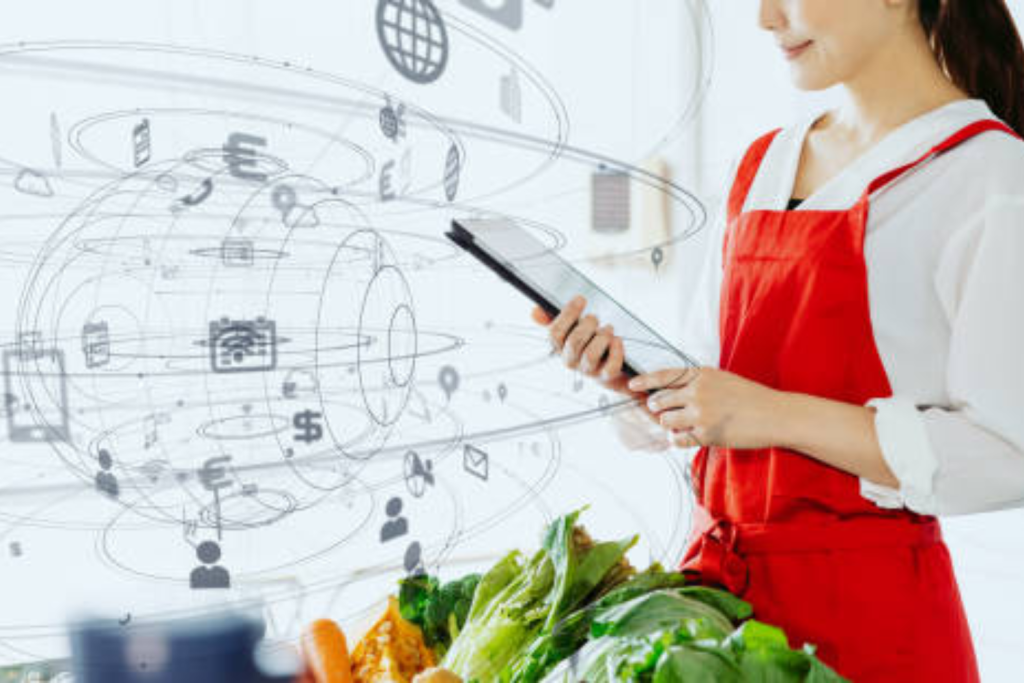The Future of Cooking: How Technology is Transforming Kitchens
How technology is transforming kitchens, often referred to as the heart of the home, has undergone significant transformations over the years. With the advent of technology, cooking, and kitchen management have seen remarkable advancements, making culinary tasks easier, more efficient, and even more enjoyable. This article explores the future of cooking and how technology is revolutionizing our kitchens, from smart appliances to advanced cooking techniques.
Smart Appliances: The Backbone of the Modern Kitchen
Connected Ovens
- Smart ovens are one of the most significant innovations in modern kitchens. These appliances come equipped with Wi-Fi connectivity, allowing users to control and monitor cooking processes remotely via smartphones or tablets. Features like recipe guidance, temperature control, and automatic shutoff ensure perfect results every time.
Intelligent Refrigerators
- Smart refrigerators have transformed food storage and management. Equipped with touchscreens and internal cameras, these fridges can track inventory, suggest recipes based on available ingredients, and even create shopping lists. Some models also offer voice control and integration with other smart home devices.
Advanced Dishwashers
- Dishwashers have also seen technological upgrades. Modern models include sensors that detect the level of dirt and adjust the washing cycle accordingly. Some dishwashers can be controlled remotely and offer features like self-cleaning and leak detection, ensuring efficiency and convenience.
Innovative Cooking Techniques
Sous Vide Cooking
- Sous vide, a method of cooking food in vacuum-sealed bags at precise, low temperatures, has gained popularity thanks to technological advancements. Modern sous vide machines are compact, user-friendly, and offer precise temperature control, resulting in perfectly cooked meals every time.
Induction Cooking
- Induction cooktops use electromagnetic fields to heat cookware directly, offering faster and more energy-efficient cooking. These cooktops provide precise temperature control and are safer than traditional gas or electric stoves, as they remain cool to the touch.
3D Food Printing
- While still in its infancy, 3D food printing holds promise for the future of cooking. This technology allows users to create intricate food designs and textures by layering ingredients in precise patterns. 3D food printers could revolutionize meal preparation and presentation in the coming years.
Kitchen Automation and AI

Voice-Activated Assistants
- Voice-activated assistants like Amazon Alexa and Google Assistant have become integral parts of modern kitchens. These devices can set timers, play music, control smart appliances, and provide cooking instructions, all through simple voice commands.
AI-Powered Cooking Apps
- Artificial intelligence has made its way into cooking apps, offering personalized recipe recommendations based on dietary preferences, allergies, and available ingredients. These apps can also suggest meal plans, track nutritional intake, and provide step-by-step cooking instructions.
Robotic Chefs
- Robotic chefs are no longer a concept of the future. These automated cooking systems can prepare meals with precision and consistency. Some models can chop ingredients, stir pots, and even plate dishes, bringing restaurant-quality cooking into home kitchens.
Sustainability and Energy Efficiency
Eco-Friendly Appliances
- With increasing awareness of environmental issues, eco-friendly kitchen appliances have become more popular. Energy-efficient refrigerators, dishwashers, and ovens reduce electricity consumption and lower utility bills. Additionally, water-saving faucets and smart irrigation systems contribute to a more sustainable kitchen.
Waste Reduction Technologies
- Innovations in waste management have also made their way into the kitchen. Smart composters and waste bins can sort recyclables, track waste production, and provide insights on reducing food waste. Some appliances even convert food scraps into compost, promoting a more sustainable lifestyle.
Smart Packaging
- Smart packaging technology helps extend the shelf life of food and reduce waste. Innovations such as vacuum-sealed containers, intelligent labels that indicate freshness, and reusable silicone bags contribute to a more sustainable approach to food storage.
Personalized Cooking Experiences
Customizable Appliances
- Future kitchen appliances will offer more customization options to cater to individual preferences. For example, ovens with adjustable compartments can cook different dishes at varying temperatures simultaneously. Similarly, modular cooktops can be reconfigured to suit different cooking styles and needs.
Immersive Cooking Classes
- Virtual and augmented reality technologies are set to transform cooking education. Immersive cooking classes allow users to learn from professional chefs in a virtual environment, providing hands-on experience without leaving the kitchen. These classes can cover everything from basic cooking skills to advanced culinary techniques.
Nutritional Tracking
- Advancements in technology allow for better tracking of nutritional intake. Smart kitchen scales and apps can analyze the nutritional content of ingredients, helping users make healthier choices. This technology is particularly beneficial for individuals with specific dietary requirements or health goals.
The Future Kitchen Design
Minimalist Aesthetics
- The future of kitchen design leans towards minimalism, with sleek lines and integrated appliances creating a clutter-free environment. Hidden storage solutions and multifunctional furniture contribute to a clean and modern look, enhancing the overall cooking experience.
Smart Lighting
- Smart lighting systems are becoming an integral part of kitchen design. These systems can adjust the brightness and color temperature based on the time of day or specific tasks, creating the perfect ambiance for cooking and dining. Voice or app control allows for easy customization of lighting settings.
Connectivity and Integration
- The future kitchen will be a fully connected hub, with appliances and devices seamlessly integrated into a smart home ecosystem. This connectivity allows for streamlined control and automation, making everyday tasks more efficient and enjoyable.
Conclusion
The future of cooking is bright, how technology is transforming kitchens with technology continuously transforming our kitchens into more efficient, sustainable, and enjoyable spaces. From smart appliances and innovative cooking techniques to personalized experiences and eco-friendly solutions, the modern kitchen is evolving to meet the needs of today’s home cooks. Embracing these advancements can enhance your culinary skills, streamline meal preparation, and create a more sustainable lifestyle. As technology continues to advance, the possibilities for the future of cooking are endless, promising a truly exciting culinary journey ahead.
